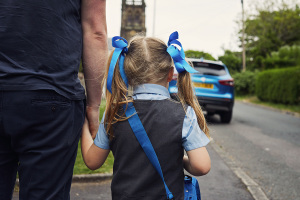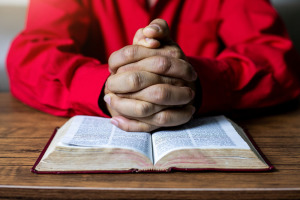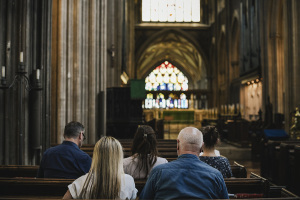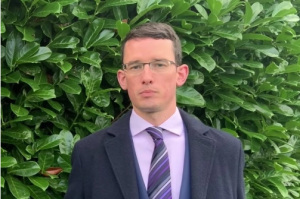Church of England Admits Gay Marriage Will Likely Be Legalized; Focuses on Improving Bill
The Church of England admitted that the majority of British MPs support legalizing same-sex marriage, and said that it will now focus its attention on trying to improve the bill as much as possible.
"Both Houses of Parliament have now expressed a clear view by large majorities on the principle that there should be legislation to enable same-sex marriages to take place in England and Wales," read a statement by The Rt. Rev. Tim Stevens, Bishop of Leicester.
"It is now the duty and responsibility of the Bishops who sit in the House of Lords to recognize the implications of this decision and to join with other Members in the task of considering how this legislation can be put into better shape."
The Anglican Communion and the Roman Catholic Church in the U.K. have been strongly urging lawmakers to preserve the definition of marriage between one man and one woman, rather than redefining it to include same-sex couples, but current government plans are set on legalizing gay marriage by 2015.
The Rt. Rev. Justin Welby, the archbishop of Canterbury, spoke on Monday during a two-day government debate on the bill, and argued that same-sex marriage would weaken society as a whole.
"Marriage is abolished, redefined and recreated – being different and unequal for different categories. The new marriage of the bill is an awkward shape with same gender and different gender categories scrunched into it – neither fitting well," Welby said.
Public opinion on gay marriage in the U.K. remains divided. International research agency YouGov conducted a poll in the U.K. in March 2012 and found that although 78 percent of respondents said they believe Britain is tolerant of gay and lesbian people, only 43 percent said they support same-sex marriage. Another 32 percent support civil partnerships for gay couples, while 16 percent are against both marriage and civil partnerships.
Another notable statistic from the poll concerns Prime Minister David Cameron, who has voiced his support for same-sex marriage – as many as 63 percent of respondents suggested that he does not actually support the bill but is doing so just for political reasons.
In his statement, Stevens said that the church has made its concerns with the bill clear, but now the task at hand is to look to strengthen the bill in a number of aspects, such as the rights of children and how fidelity in marriage is defined.
"If this Bill is to become law, it is crucial that marriage as newly defined is equipped to carry within it as many as possible of the virtues of the understanding of marriage it will replace. Our focus during Committee and Report stages in the coming weeks and months will be to address those points in a spirit of constructive engagement," he stated.
The new Bishop of Manchester, the Rt. Rev. Nigel McCulloch, recently said that the same-sex marriage bill is flawed, but noted that he understands why some are backing this change.
"I fully understand why in a society where for so long gay people have been subjected to such abuse and ill treatment many people say if they are asking for equality in the area of marriage that is something they can get," McCulloch said.
"I can see why in our society many people now – the majority of people – think that if this will help them to feel less badly treated then let them have it."





























